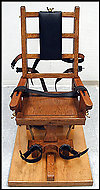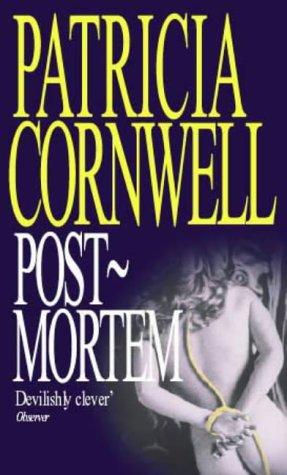In 1993, Marcus Wellons was convicted of raping and killing a 15-year-old girl back in 1989. His punishment…the death penalty.
A witness told officials they’d seen Wellons carrying a large object wrapped in a sheet into a wooded area near his home. Police located the girl’s nude body in that same wooded area. Evidence of the murder was also found in Wellons’ girlfriend’s apartment.
Marcus Wellons entered death row at the age of 34, where he waited to die. In the months and years since he first walked through the prison gates, Wellons’ probably passed time by watching TV, reading, exercising, and eating the meals that were delivered to him. His cell was cool in the summer and warm in the winter.
Wellons’ and his attorneys kept the courts busy by filing various appeals, hoping to find someone who could somehow spare the life of the man who brutally raped and murdered a young girl. Even at the end, those same attorneys made a last minute plea to Justice Clarence Thomas, who, by the way, is from Georgia. Justice Thomas passed on the appeal to the full Court, who rejected it.
Last night, twenty-five long years after the crime was committed, Georgia prison officials finally carried out the execution of Marcus Wellons, by lethal injection. He was 59-years-old.
Early this morning, in Missouri, officials there executed John Winfield. Winfield was convicted of shooting three women in the head in 1996, killing two of them. Another execution is scheduled later today, in Florida.
Each time an execution is carried out, my mind takes me back to a night in 1994 when I served as witness to an execution by electrocution/electric chair.

Since it was my job to arrest murderers for their crimes, I figured I should see what could be the end result of my investigations.
And it was that thinking that brought me to this…
Have you ever sat looking into the eyes of a serial killer, watching for some sign of remorse for his crimes, wondering if he would take back what he’d done, if he could? Have you ever smelled the burning flesh of a condemned killer as 1,800 volts of electricity ripped through his body? No? Well, I have.
Timothy Wilson Spencer began his deadly crime spree in 1984, when he raped and killed a woman named Carol Hamm in Arlington, Virginia. Spencer also killed Dr. Susan Hellams, Debby Davis, and Diane Cho, all of Richmond, Virginia. A month later, Spencer returned to Arlington to rape and murder Susan Tucker.

Timothy W. Spencer
The Southside Strangler
Other women in the area were killed by someone who committed those murders in a very similar manner. Was there a copycat killer who was never caught? Or, did Spencer kill those women too? We’ll probably never learn the truth.
Spencer was, however, later tried, convicted, and sentenced to die for the aforementioned murders. I requested to serve as a witness to his execution. I figured if I had the power to arrest and charge someone with capital murder, then I needed to see a death penalty case through to the end.
On the evening of Spencer’s execution, corrections officials met me at the state police area headquarters. I left my unmarked Chevrolet Caprice there and they drove me to the prison. We passed through the sally port and then through a couple of interior gates, stopping outside the building where death row inmates await their turn to die.
Once inside, I was led to a room where other witnesses waited for a briefing about what to expect. Then we, in single file, were led to where we’d soon watch a condemned person be put to death.
The room where I and other witnesses sat waiting was inside the death house at Virginia’s Greensville Correctional Center. At the time, the execution chamber was pretty much a bare room, with the exception of Old Sparky, the state’s electric chair, an instrument of death that, ironically, was built by prison inmates.

Old Sparky, Virginia’s electric chair, was built by inmates.

State executions in Virginia are carried out at Greensville Correctional Center.

Timothy Spencer was put to death on April 27, 1994 at 11:13 pm.
The atmosphere that night was nothing short of surreal. No one spoke. No one coughed. Nothing. Not a sound as we waited for the door at the rear of “the chamber” to open. After an eternity passed, it did. A couple of prison officials entered first, and then Spencer walked into the chamber surrounded by members of the prison’s death squad (specially trained corrections officers).
I later learned that Spencer had walked the eight short steps to the chamber from a death watch cell, and he’d done so on his own, without assistance from members of the squad. Sometimes the squad is forced to physically deliver the condemned prisoner to the execution chamber. I cannot fathom what sort mindset it takes to make that short and very final walk. Spencer seemed prepared for what was to come, and he’d made his peace with it.
Spencer was shorter and a bit more wiry than most people picture when thinking of a brutal serial killer. His head was shaved and one pant leg of his prison blues was cut short for easy access for attaching one of the connections (the negative post, I surmised). His skin was smooth and was the color of milk chocolate. Dots of perspiration were scattered across his forehead and bare scalp.
Spencer scanned the brightly lit room, looking from side to side, taking in the faces of the witnesses. I wondered if the blonde woman beside me reminded him of either of his victims. Perhaps, the lady in the back row who sat glaring at the condemned killer was the mother of one of the women Spencer had so brutally raped and murdered.
After glancing around the brightly lit surroundings, Spencer took a seat in the oak chair and calmly allowed the death squad to carry out their business of fastening straps, belts, and electrodes. His arms and legs were securely fixed to the oak chair. He looked on, seemingly uninterested in what they were doing, as if he’d just settled in to watch TV, or a movie.
I was seated directly in front of the cold-blooded killer, mere feet away, separated by a partial wall of glass. His gaze met mine and that’s where his focus remained for the next minute or so. His face was expressionless. No sign of sadness, regret, or fear.
The squad’s final task was to place a metal, colander-like hat on Spencer’s head. The cap was lined with a brine-soaked sponge that serves as an excellent conductor of electricity.
I wondered if Spencer felt the presence of the former killers who’d died in the chair before him—Morris Mason, Michael Smith, Ricky Boggs, Alton Wayne, Albert Clozza, Derrick Peterson, Willie Jones, Wilbert Evans, Charles Stamper, and Roger Coleman, to name a few.
Morris Mason had raped his 71-year-old neighbor. Then he’d hit her in the head with an ax, nailed her to a chair, set her house on fire, and then left her to die.
Alton Wayne stabbed an elderly woman with a butcher knife, bit her repeatedly, and then dragged her nude body to a bathtub and doused it with bleach.
A prison chaplain once described Wilbert Evans’ execution as brutal. “Blood was pouring down onto his shirt and his body was making the sound of a pressure cooker ready to blow.” The preacher had also said, “I detest what goes on here.”
Yes, I wondered if Spencer felt any of those vibes coming from the chair. And I wondered if he’d heard that his muscles would contract, causing his body to lunge forward. That the heat would literally make his blood boil. That the electrode contact points were going to burn his skin. Did he know that his joints were going to fuse, leaving him in a sitting position? Had anyone told him that later someone would have to use sandbags to straighten out his body? Had he wondered why they’d replaced the metal buttons buttons on his clothes with Velcro? Did they tell him that the buttons would have melted?
For the previous twenty-four hours, Spencer had seen the flurry of activity inside the death house. He’d heard the death squad practicing and testing the chair. He’d seen them rehearsing their take-down techniques in case he decided to resist while they escorted him to the chamber. He watched them swing their batons at a make-believe prisoner. He saw their glances and he heard their mutterings.
Was he thinking about what he’d done?
I wanted to ask him if he was sorry for what he’d done. I wanted to know why he’d killed those women. What drove him to take human lives so callously?
The warden asked Spencer if he cared to say any final words—a time when many condemned murderers ask for forgiveness and offer an apology to family members of the people they’d murdered. Spencer opened his mouth to say something, but stopped, offering no apology and showing no remorse. Whatever he’d been about to say, well, he took it with him to his grave.
He made eye contact with me again. And believe me, this time it was a chilling experience to look into the eyes of a serial killer just mere seconds before he himself was killed. All the way to the end, he kept his gaze on me.
Suddenly all eyes were on the red telephone hanging on the wall at the rear of the chamber—the direct line to the governor. Spencer’s last hope to live beyond the next few seconds. It did not ring.
The warden nodded to the executioner, who, by the way, remained behind a wall inside the chamber, out of our view. Spencer must have sensed what was coming and, while looking directly into my eyes, turned both thumbs upward. A last second display of his arrogance. A death squad member placed a leather mask over Spencer’s face, then he and the rest of the team left the room. The remaining officials stepped back, away from the chair.
Seconds later, the lethal dose of electricity was introduced, causing the murderer’s body to swell and lurch forward against the restraints that held him tightly to the chair.
Suddenly, his body slumped into the chair. The burst of electricity was over. However, after a brief pause, the executioner sent a second burst to the killer’s body. Again, his body swelled, but this time smoke began to rise from Spencer’s head and leg. A sound similar to bacon frying could be heard over the hum of the electricity. Fluids rushed from behind the leather mask. The unmistakable pungent odor of burning flesh filled the room.
The electricity was again switched off and Spencer’s body relaxed.
It was over and an eerie calm filled the chamber. The woman beside me cried softly. I realized that I’d been holding my breath and exhaled, slowly. No one moved for five long minutes (I later learned that this wait-time was to allow the body to cool down. The hot flesh would have burned anyone who touched it).
The prison doctor slowly walked to the chair, placed a stethoscope against Spencer’s chest, and listened for a heartbeat. A few seconds passed before the doctor looked up and said, “Warden, this man has expired.”
That was it. Timothy Spencer, one of the worse serial killers in America was dead, finally.
Strange, but true facts about Spencer’s case:
– Spencer raped and killed all five of his victims while living at a Richmond, Virginia halfway house after his release from a three-year prison sentence for burglary. He committed the murders on the weekends during times when he had signed out of the facility.
– Spencer was the first person in the U.S. executed for a conviction based on DNA evidence.
– David Vasquez, a mentally handicapped man, falsely confessed to murdering one of the victims in the Spencer case after intense interrogation by police detectives. He was later convicted of the crime and served five years in prison before DNA testing proved his innocence. It was learned that Vasquez didn’t understand the questions he’d been asked and merely told the officers what he thought they wanted to hear.
– Spencer used neck ligatures to strangle each of the victims to death, fashioning them in such a way that the more the victims struggled, the more they choked.
– Patricia Cornwell’s first book, Post Mortem, was based on the Spencer murders.





































































